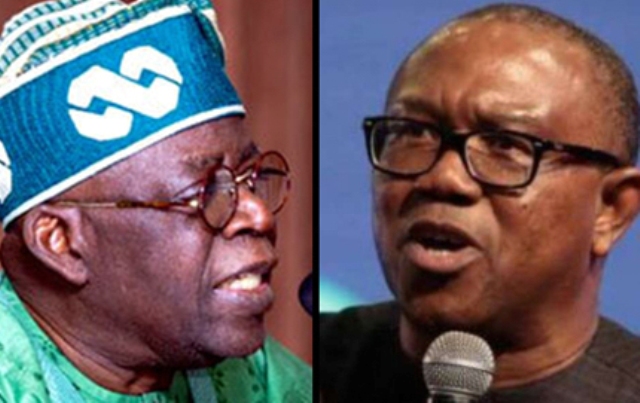The Justice Haruna Tsammani-led presidential election petition court (PEPC) sitting in Abuja said on Wednesday that Labour Party (LP) and its presidential candidate in the February 25 election, Mr Peter Obi claimed to have scored the majority of lawful votes cast but their allegation fell flat as they failed to state the number of lawful votes they scored.
Recall that Independent National Electoral Commission (INEC) announced the President Bola Tinubu of the ruling All Progressives Congress (APC) as the winner of the presidential election, trouncing Obi, Atiku Abubakar of the Peoples Democratic Party (PDP) and other candidates.
Both Obi and Atiku went to the tribunal challenging the verdict of the electoral umpire with Obi saying he won the election and should be declared winner.
However, the court said in its ruling that both Obi and the LP did not by way of credible evidence, substantiate the allegation of manifest corrupt practices in the election.
In the lead judgement read by Justice Abba Mohammed, the court said Obi and his party only made sweeping allegations of irregularities, suppression of votes and corrupt practices to rob them of their votes, especially in Rivers, Benue, Lagos, Taraba, Imo and Osun states but failed to specify the polling units affected.
“They failed to state the number of votes affected and the number of people disenfranchised.
“The determination of election is about figures.
“It is unimaginable that a petitioner will allege widespread rigging in 176,000 polling units, over 8,000 wards, 774 local government areas, 36 states and FCT without stating the specific place where the alleged irregularities occur.
“The law is very clear that where someone alleges irregularities in a particular polling unit, such person must prove the particular irregularities in that polling unit for him to succeed in his petition.
“Labour Party made generic allegations of irregularities and said they would rely on spreadsheets, inspection reports, and forensic analysis… but the documents promised by the petitioners were not attached to the petition,” Mohammed said.
The court also held that several portions of the petition that contained the allegations “are vague, imprecise, nebulous and bereft of particular materials.”
It therefore struck out paragraphs 9, 60, 61, 66, 67, 68, 69, 70, 71, 72, 73, 76, 77, 78, 83 and 89 of the petition.
























































